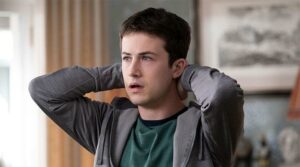Psychological Manipulation in the Courtroom
Victor Gold
Nebraska Law Review
Volume 66 | Issue 3
1987
This Article is brought to you for free and open access by the Law, College of at DigitalCommons@University of Nebraska – Lincoln. It has been accepted for inclusion in Nebraska Law Review by an authorized administrator of DigitalCommons@University of Nebraska – Lincoln.
-
Increasing and Improving the Flow of Information
Trial lawyers have for centuries exploited psychological princi
Professor of Law, Loyola Law School, Los Angeles, California.
This commentary is drawn from a recent article by Professor Gold. See Gold, CovertAdvocacy
1987] PSYCHOLOGICAL MANIPULATI
ogists are available to advise
Historically, lawyers have employed these experts when the eco- nomic or political issues at stake warranted the expense. Now, how- ever, lawyers are developing the capacity to systematically employ psychological courtroom techniques on their own. Continuing legaledu
ticles in journals for trial lawyers describing various psychology-based advocacy techniques. These articles reflect an even larger and still growing body of academic literature concerning jury cognitive processes. As psychologists refine this research and as the advocacy techniques based upon it become more effective, increas
Little concern has been expressed about this use of psychology as an advocacy tool. Perhaps lawyers are too eager, embracing psychology as the long awaited means of controlling the uncertainties of jury trial, to worry about its broader implications. Some behavioral
Yet there is reason for concern. Many of the psychology-based ad- vo
abashed efforts to induce jury reliance on bias. Lawyers can use other techniques to induce juries to evaluate evidence illogically. Lawyers can produ
I argue in this essay that subconscious p
1. Dance off, Hidden Persuaders of the Courtroom, BARIMSTERS, winter 1
NEBRASKA LAW REVIEW [Vol. 66:
macy of both the jury and adversary systems in a way and to a degree never before threatened by conventional advocacy methods. After ex- amining the techniques of covert advocacy
I. THE TECHNIQUES OF COVERT ADVOCACY
A. Techniques to Induce the Use of Extra-Legal Basis for Decision making
Trial practitioner journals make frequent reference to psychologi- cal techniques aimed at inducing the jury to employ an extra-legal ba- sis for its decision. A decision making input is extra-legal when it is either irrelevant to the legal or factual issues of a case or is considered by the law to be an otherwise improper basis for decision making. This group of techniques is itself
1. Courtroom Style as an Extra-Legal Basis for Decision ma
Courtroom style refers to how a lawyer and the witnesses tell their stories in the courtroom. Courtroom style techniques involve body movement, physical appear
Language and voice are important elements of courtroom style. For example, several articles recently written for trial lawyers by be- havioral scientists focus on a series o
1987] PSYCHOLOGICAL MANIPULATION
ity. Instead, it was correlated only with witness social status. Wit- ne
These results encourage lawyers to train their own witnesses to use powerful speech and to use that linguistic style themselves. These re- sults further encourage lawyers to induce powerless speech in oppos- ing witnesses to the extent possible. But since the distinction between powerful and powerless witness speech is not probative of witness credibility or any other relevant matter, efforts to exploit that distinction support an extra-legal basis for jury decision making. If the jury believes the distinction is probative of wi
The manner in which this extra-legal consideration shapes jury decision making makes it particularly dangerous. Most jurors would reject an overt suggestion to evaluate witness credibility based on social status. When an attorney makes the suggestion covertly through manipulation of linguistic style, the jury may be unable to detect and reject the subtle thrust of the attorney’s efforts. Similarly, a verdict overtly based on considerations of social status would raise serious moral and constitutional questions that any trial or appellate judge could identify. When damage awards decrease with a decrease in the apparent social status of plai
Many other courtroom style techniques seek to capitalize on this psychological correlation
NEBRASKA LAW REVIEW [Vol. 66:562
affect jury decision making through subtle means since an overt re- quest to consider the attorney’s social status would probably be ineffective, if not offensive.
The result is not only to distract the jury with extra-legal matters but also to obscure the importance of relevant evidenc
Other courtroom techniques dealing with linguistic style seek to exploit additional psychological tende
However, the opportunity for lawyers to indirectly assert facts through manipulating the form of questions is not limited to rape cases and the use of this technique is often not so obvious. Research suggests tha
Research also has indicated that attorneys can use their knowledge of such everyday con
1987] PSYCHOLOGICAL MANIPULATI
evidence, when a lawyer exploits this knowledge he or she again seeks to induce the jury to employ an extra-legal basis for decision making.
2. Bias as an Extra-Legal Basis for Decision
Lack of bias by the trier of fact is a fundamental aspect of fairness. The jury should decide a case solely on the evidence presented in open court, not on knowledge or beliefs the jurors bring with them to court. Bias, then, is an extra-legal basis for decision making. However, some researchers suggest that in controversial trials or in trials where the evidence is not clear cut, extra-legal bias may influence the result in as many as half the cases.
Juror bias is an issue when lawyers examine the qualifications of prospective jurors during voir dire. The stated purpose of the lawyer during voir dire is to assist the court in selecting a fair and impartial jury. An indication of bias or opinion, such as knowl
To psychologists, however, the unbiased juror does not exist. Jurors, like other human decisionmakers, cannot evaluate evidence as if it were sui generis but must always relate it to past experiences and preconceived beliefs about the world. Based on this premise, some psychologists have concluded t
Working from this logic, psychologists have developed a number of techniques for jury selection, commonly labeled “
The use of this data to select the most favorably biased jury is just the first step. After attempting to select a jury susceptible to bias, the attorney then tailors the presentation of evidence to induce the jury to apply its biases in decision making. Such efforts to induce jury reliance on bias work covertly. Obviously, the jurors do not know they have been selected because of bias. In fact, it is likely counsel tells them before, during, and after voir dire that the purpose of jury selection proc
NEBRASKA LAW REVIEW [Vol. 66:
of covert advocacy is to induce the jury to employ bias while concealing from the jury the fact of their reliance on bias. Empirical studies suggest that this goal is well within reach. Juries often apply bias un- consciously whi
B. Techniques to Induce Illogical Evaluation of Evidence
The second category of psychological techniques described in trial practitioner journals seeks to induce the jury to evaluate the evidence illogically. The jury illogically evaluates evi
1. Meaning Manipulators
One article discussing the psy
[a]s a defense tactic, an attorney can load the courtroom with spectators, presenting a variety of new contextual stimuli which might succeed in drown- ing out the stimuli presented by the opposing lawyers…. [A] parti
2
Such efforts to disrupt jury perception in the courtroom could cause the jury to commit a logical error: the jury could accord per- fectly probative evidence no effect.

